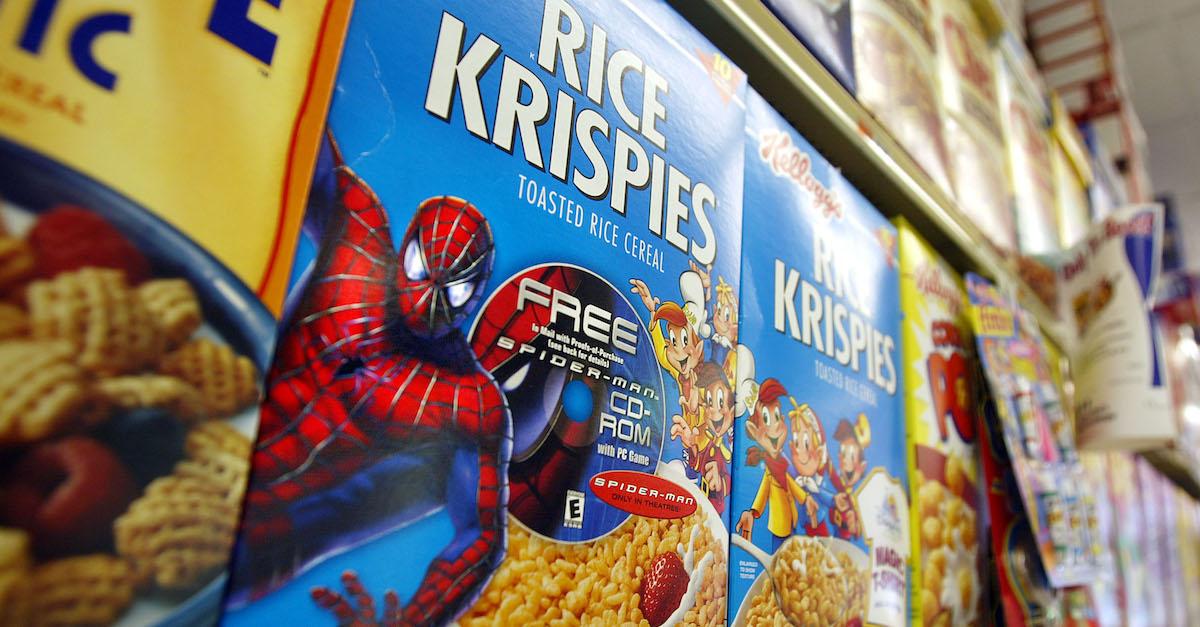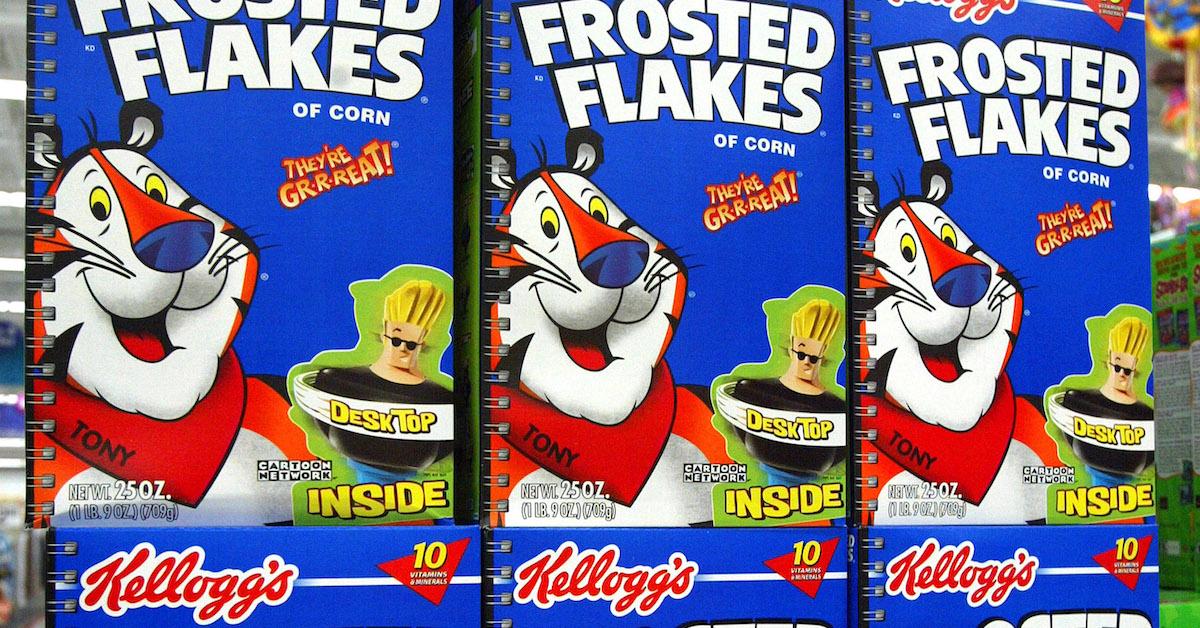Why are Kellogg's products facing a widespread boycott, and what are the driving forces behind this consumer backlash? The controversy surrounding Kellogg's stems from a complex interplay of labor disputes, tone-deaf comments from its CEO, and a growing awareness of corporate practices that many consumers find objectionable.
The Kellogg's brand, synonymous with breakfast cereals like Frosted Flakes and Rice Krispies, has found itself at the center of a storm. The genesis of the current boycott can be traced back to a combination of factors that have resonated deeply with consumers. A significant catalyst was the commentary from Kellogg's CEO, Gary Pilnick, who suggested that consumers struggling financially could turn to cereal as a cost-effective dinner option. This statement, perceived by many as insensitive and out of touch with the realities of rising food costs, sparked immediate outrage.
Adding fuel to the fire was the backdrop of a labor dispute. Around 1,400 employees at four Kellogg's plants in the United States were on strike, demanding fair contracts and better working conditions. Consumer support for these striking workers further fueled the boycott movement, as individuals sought to express solidarity and pressure the company to negotiate in good faith. The strike, coupled with the CEO's remarks, created a perfect storm of public discontent, leading to widespread calls for consumers to abandon Kellogg's products.
- Bollyflix New The Ultimate Guide To Your Favorite Bollywood Movies
- Desicamnet The Ultimate Hub For Photography Enthusiasts
The boycott movement quickly gained momentum on social media platforms, particularly TikTok. Influencers and everyday consumers alike used the platform to share their concerns and urge others to participate in the boycott. This digital activism, driven by both grassroots efforts and strategic campaigns, amplified the reach of the boycott and further pressured the company.
The issue of added food dyes in the company's cereals also played a role in the public outcry. Some consumers were concerned about the presence of artificial colors in Kellogg's products, particularly in the United States, where such ingredients are still widely used in certain products, while similar products in other countries, such as Canada, use natural dyes. This discrepancy raised questions about the company's commitment to consumer health and environmental concerns.
The boycott of Kellogg's products is a multifaceted issue with several key factors driving it. The movement encompasses labor disputes, environmental concerns, and health and nutrition issues. These factors have collectively prompted many individuals to reconsider their consumption of Kellogg's products.
- 4k Khatrimaza Your Ultimate Guide To Ultra Hd Movie Streaming
- Darlene M Friedland The Remarkable Journey Of An Influential Figure
The boycott, which was proposed on TikTok, was scheduled to run from April 1 to June 30, and it urges customers to purchase products from other companies in order to send Kellogg's a message during the second quarter of the year.
Furthermore, the company's past actions have contributed to the current backlash. In 2015, Kellogg's pledged to remove artificial flavors and colors from its products by 2018. However, nine years later, 15% of their cereals still contain these additives, which has drawn criticism from consumers who feel that the company has not lived up to its promises.
The combination of these events has led to a significant boycott against Kellogg's. There has been considerable social media backlash. Additionally, the subreddit r/antiwork, known for its discussions on worker exploitation, initiated a campaign to flood Kellogg's job application site. While Kellogg's has not openly supported Israeli policies, its connections with Israeli companies have resulted in calls for boycotting Kellogg's products among Palestinian activists. While these calls have not yet had a significant financial impact on Kellogg's, they have affected the company's reputation, especially in regions like the Middle East.
The use of artificial food dyes in Kelloggs products, particularly in comparison to products sold in other countries, has also drawn criticism. This has further contributed to the boycott movement.
The boycott is also fueled by individuals' desire to voice their dissatisfaction with corporate practices. People are increasingly aware of the power they wield as consumers and are using boycotts as a means of holding companies accountable for their actions. This trend reflects a broader shift toward ethical consumerism, where consumers are not only concerned about the price and quality of products but also the values and practices of the companies that produce them.
Moreover, the boycott resonates with the ongoing discussions around macroeconomic inflation and the impact of rising costs on everyday life. The comments by the CEO, perceived as a sign of corporate indifference to consumer struggles, further heightened this sensitivity.
This movement is happening during a time when many people are increasingly aware of the power they have as consumers. The boycott reflects a greater emphasis on ethical consumerism, where people consider not only the cost and quality of products but also the companies' values and practices.
The decision by Kellogg's to pull all of its advertising from Breitbart, citing concerns about the platform, also triggered reactions, adding to the complex mix of factors influencing the boycott.
This is the type of action that is needed. Many people understand that struggle meals are real things. The reason people are choosing to spend their time on this boycott is because they're tired of people like the ceo of kelloggs bragging about how much money they are making by increasing the cost of food then telling everyone who is struggling that they should have struggle meals.
The boycott is a complex issue driven by many factors. From worker strikes and environmental concerns to health and nutrition issues, people are choosing to avoid Kellogg's products for several reasons. The company could face a national boycott after the CEO's comments on TikTok. This could cause other food companies that are seen as similarly squeezing their consumers to experience a boycott.
One key figure in this movement is Hari, who announced a boycott of Kellogg's and stated that she would deliver over 400,000 petitions to Kellogg's headquarters. When she arrived at the headquarters, more than 1,000 people joined her in the march. She's gained national recognition, claiming she successfully pressured companies to remove artificial coloring from their products.
In response, consumers are turning to alternative breakfast options like those offered by Aldi, whose Frosted Flakes are claimed to taste identical to Kellogg's.
- Penelope Menchaca Onlyfans The Ultimate Guide To Her Rise Content And Success
- Unveiling The World Of Khatrimaza 4k Movies Your Ultimate Guide


